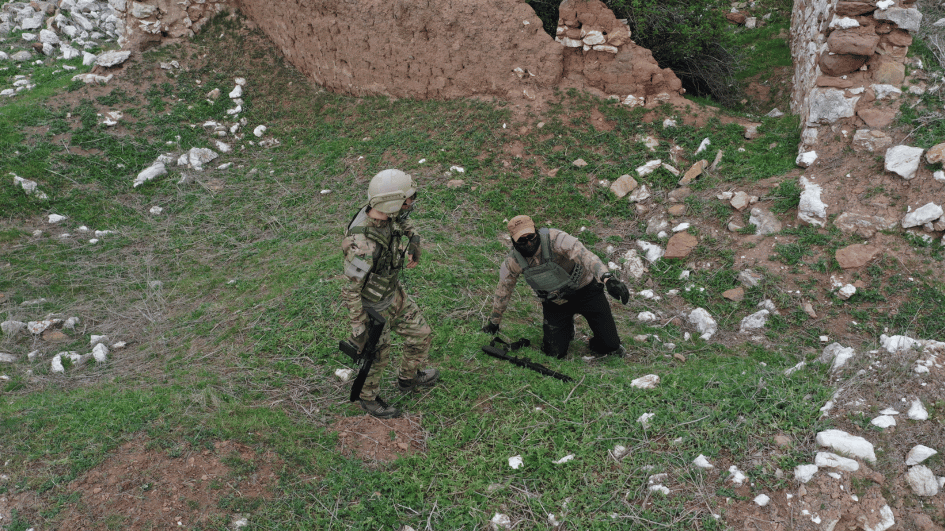Multilateralism and Turkey's COVID-19 story
Turkey’s envoys to Beijing, Seoul and Rome shared their observations on how these countries have handled the novel coronavirus pandemic at a webinar organized on April 8 by the Presidency’s Communications Directorate.
“I believe [the World Health Organization] followed a little bit from behind,” said Abdülkadir Emin Önen, Turkey’s ambassador to China, noting that the WHO made mistaken assessments, even as China was locking down Wuhan and other cities in Hubei on Jan. 24.
“It never talked in its initial statements about the possibility that the outbreak could turn into a pandemic; it said there was no obstruction to trade and travel,” he said.
“Had the WHO introduced restrictions to travel at that stage, I am sure [the pandemic] would not have spread so fast to the world,” he said.
It is interesting to hear this comment from a Turkish official living in China. Since the beginning of the outbreak, there was some speculation that the WHO’s China-educated chief, Ethiopian Tedros Adhanom Ghebreyesus – the first African to lead the organization – was elected thanks to support from Beijing. While U.S. President Donald Trump has been accusing the WHO for acting too slowly to sound the alarm about COVID-19, the WHO has also been the target of criticisms for having been too trusting of the Chinese government, which initially tried to conceal the outbreak.
No doubt, not only the WHO, but all relevant international organizations will come under scrutiny once this crisis is over. Actually, the whole concept of international solidarity and cooperation will have to come under focus in the post-COVID-19 era, and I am sure Turkey will be very eager to take up leadership in stimulating the debates.
Obviously, it is up to foreign governments to judge to what degree Turkey has done its share in terms of international solidarity against the pandemic, but Turkish envoys to China and Italy emphasized Turkey’s assistance to both of these countries. According to Önen, Turkey was one of the first countries to send medical material to China. While Italy has also received assistance from Turkey, the flight that went to bring back Turkish students also carried Italians who wanted to go home.
Önen, who was a businessman before being appointed to Beijing as an ambassador, recalled how some Europeans countries asked about the price of the airplane tickets from the nationals they evacuated from China; similarly, he said some people returning to their countries were quarantined in state facilities and had to pay for it. All this was done free of charge for Turkish citizens. Önen also recalled that Turkey set up a science committee on Jan. 10, a day after the first death was announced in China, and said Turkey took timely steps to slow down the outbreak. He again recalled the criticisms regarding the construction of big city hospitals, an initiative spearheaded by the Justice and Development (AK Party) governments, arguing that their relevance has become clear during the pandemic. Önen argued Turkey has shown the performance of a “social state” that could be exemplary for the world.
Turkey a loyal multilateralist
While Turkey’s foreign policy has come frequently under criticism by its allies, it has always remained a loyal multilateralist. AK Party governments have been the biggest supporters of U.N. agencies. Therefore, it could rightly lead post-COVID-19 debates on international solidarity. It is, however, a little bit too early to suggest it has shown an exemplary performance in terms of handling the pandemic. Time will tell.
But what time will definitely tell is that both international and local best practices are based on cooperation and coordination.
At the national level, this means cooperation and coordination between the central administration and local governments while suspending unnecessary rivalries. In that sense, the consequences of polarization might overshadow the “success story” that Turkey will tell the world in the future.
Let’s take the case of Istanbul, where 60 percent of the cases are seen. The mayor of Turkey’s biggest city, who is from the opposition Republican People’s Party (CHP), complains of having no access to the capital.
With its 85,000 workers, present in all domains of life in the country’s biggest city, Istanbul Metropolitan Municipality should be the central administration’s most important ally. It is only natural for the mayor to play a key role in the fight against the pandemic. Yet he has only limited access to the media.
Mayor Ekrem İmamoğlu voices his own local warnings, asking, for instance, that residents be careful while using water in order to avoid any water shortages. This is followed by statements from the Agriculture and Forestry Ministry that
Istanbul has enough water. Whoever is right does not matter. This is no time for contradictory statements.
We can extend the list in terms of polarization, but the fact that a CHP proposal to introduce a bill concerning violence against health personnel, a problem Turkey has long suffered from even before the pandemic, was turned down by the ruling coalition on April 7 says it all.
The ruling coalition said it was preparing its own bill on the issue. But as the CHP argued, the endorsement of the bill would have boosted the morale of health personal, who are currently working under dire circumstances. The last thing health personnel, to say nothing of the nation at large, want is political bickering.











